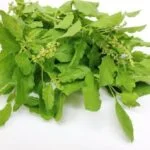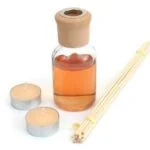Tea tree oil benefits aromatherapy by offering a multitude of physical and mental health benefits. This essential oil has been used for centuries and is known for its powerful antiseptic properties. In this article, we will explore the origins and history of tea tree oil, the science behind its efficacy in aromatherapy, as well as its numerous benefits for both physical and mental well-being.
The history of tea tree oil dates back to ancient times, when indigenous Australians utilized the leaves of the Melaleuca alternifolia plant for medicinal purposes. Over time, its use spread and became popular in aromatherapy due to its healing properties. Today, it is widely recognized as a versatile essential oil with a range of therapeutic applications.
When it comes to the science behind tea tree oil aromatherapy, research has shown that it possesses antimicrobial, anti-inflammatory, and antifungal properties. These qualities make it an effective natural remedy for various physical ailments such as skin conditions and respiratory issues. Additionally, its refreshing scent can also have positive effects on mental health, making it a valuable tool in promoting relaxation and emotional balance.
The History and Origins of Tea Tree Oil
Tea tree oil, also known as melaleuca oil, has been used for centuries by indigenous Australians for its medicinal and therapeutic properties. The oil is derived from the leaves of the tea tree, which is native to Australia. The history and origins of tea tree oil can be traced back to the Aboriginal people, who crushed the leaves of the tea tree to extract the precious oil. They used it to treat wounds, infections, and various other ailments.
The use of tea tree oil eventually spread beyond the indigenous communities in Australia, and it gained recognition for its powerful healing properties. In the 1920s, Australian chemist Arthur Penfold conducted research on the antiseptic properties of tea tree oil, which led to its widespread use in modern medicine and skincare.
The medicinal value of tea tree oil is mainly attributed to its primary component, terpinen-4-ol, which possesses antimicrobial and anti-inflammatory properties. With its rich history deeply rooted in traditional medicine, tea tree oil has become a staple in aromatherapy practices around the world. Its diverse range of benefits makes it a valuable addition to any aromatherapy routine.
The Science Behind Tea Tree Oil Aromatherapy
Tea tree oil, also known as melaleuca oil, is derived from the leaves of the Melaleuca alternifolia plant native to Australia. It has been used for centuries by indigenous Australians for its antiseptic properties. The oil contains over 100 different compounds, making it a powerful natural substance with a wide range of therapeutic benefits. When used in aromatherapy, tea tree oil can positively affect both the mind and body.
The main components of tea tree oil are terpinen-4-ol, gamma-terpinene, and alpha-terpinene, which have been shown to have antimicrobial, anti-inflammatory, and antifungal properties. These properties make tea tree oil an effective remedy for various physical ailments such as acne, athlete’s foot, and minor cuts and wounds.
In addition to its physical benefits, tea tree oil aromatherapy has also been found to have a positive impact on mental health. The aroma of tea tree oil has been known to reduce stress and anxiety levels, promote relaxation, and enhance overall emotional well-being. This is due to the oil’s ability to stimulate the limbic system in the brain, which is responsible for emotions and memories.
Benefits of Tea Tree Oil Aromatherapy for Physical Health
Tea tree oil, derived from the leaves of the Melaleuca alternifolia plant, has been used for centuries by indigenous Australians to treat various ailments. When used in aromatherapy, tea tree oil can have numerous physical health benefits. Here are some of the ways in which tea tree oil aromatherapy can improve physical well-being:
- Antibacterial and Antimicrobial Properties: Tea tree oil is known for its powerful antibacterial and antimicrobial properties, making it an effective natural remedy for treating minor cuts, wounds, and skin infections.
- Respiratory Health: Inhaling tea tree oil can help alleviate symptoms of respiratory conditions such as colds, coughs, and congestion. Its decongestant properties can help clear the sinuses and promote easier breathing.
- Skin Care: Tea tree oil is a popular ingredient in skincare products due to its ability to soothe skin irritations, reduce inflammation, and combat acne. When used in aromatherapy, it can promote healthy skin and alleviate skin conditions such as eczema and psoriasis.
In addition to these benefits, tea tree oil aromatherapy has also been found to have analgesic properties that can help relieve pain and discomfort associated with various physical ailments. The use of tea tree oil in aromatherapy has gained popularity as a natural alternative for supporting physical health and wellness.
When using tea tree oil for physical health benefits within an aromatherapy practice, it is important to do so with caution. While it offers multiple benefits, it is potent and should be used sparingly. It is crucial to dilute tea tree oil with a carrier oil before applying it on the skin to avoid any adverse reactions or irritation. Additionally, always consult with a healthcare professional before using tea tree oil if you are pregnant or have underlying medical conditions.
Overall, the potential benefits of tea tree oil aromatherapy for physical health make it a valuable addition to anyone’s holistic wellness routine. Whether incorporated into massage oils, diffused in the home environment, or added to skincare products, this versatile essential oil can provide an array of benefits for promoting overall physical well-being.
Benefits of Tea Tree Oil Aromatherapy for Mental Health
Tea tree oil is not only beneficial for physical health but also has positive effects on mental well-being. The use of tea tree oil in aromatherapy can help alleviate stress, anxiety, and improve overall mental wellness.
Stress Reduction
Aromatherapy using tea tree oil has been found to be effective in reducing stress levels. The soothing aroma of tea tree oil can help calm the mind and promote relaxation, which in turn can reduce feelings of stress and tension.
Mood Elevation
The use of tea tree oil in aromatherapy has shown to have mood-lifting properties. Inhaling the aroma of tea tree oil can stimulate the production of serotonin, a neurotransmitter that contributes to feelings of happiness and well-being. This can help uplift a person’s mood and improve their overall mental outlook.
Anxiety Relief
Tea tree oil benefits aromatherapy by helping to reduce feelings of anxiety. The calming effect of the oil’s fragrance can aid in reducing nervousness and promoting a sense of tranquility. Incorporating tea tree oil into an aromatherapy routine may be particularly beneficial for those dealing with mild to moderate anxiety.
How to Use Tea Tree Oil in Aromatherapy
Tea Tree Oil is a versatile essential oil that can be used in various ways, including aromatherapy. In this section, we will explore the different methods of using Tea Tree Oil in aromatherapy to experience its benefits for physical and mental health.
Diffusion
One of the most common ways to use Tea Tree Oil in aromatherapy is through diffusion. Whether you use a diffuser or simply add a few drops to a bowl of hot water, inhaling the aroma of Tea Tree Oil can help improve respiratory conditions, boost immunity, and create a clean and refreshing environment.
Topical Application
Tea Tree Oil can also be used topically in aromatherapy, but it is important to dilute it with a carrier oil such as jojoba or coconut oil. This method can be beneficial for addressing skin issues like acne, eczema, and fungal infections. Massaging diluted Tea Tree Oil onto the skin can also provide soothing relief for muscle aches and pains.
Bath Therapy
Adding a few drops of Tea Tree Oil to a warm bath can create a relaxing and therapeutic experience. Not only does the aroma enhance relaxation, but the oil’s antifungal and antibacterial properties can also help alleviate skin ailments while promoting overall well-being.
By incorporating these methods into your daily routine, you can harness the many benefits of Tea Tree Oil in aromatherapy for both your physical and mental health. However, it is essential to take necessary safety precautions when using Tea Tree Oil to ensure its effectiveness without any adverse reactions.
Safety Precautions and Considerations When Using Tea Tree Oil
When using tea tree oil for aromatherapy, it is important to be aware of a few safety precautions and considerations to ensure a positive and safe experience. While tea tree oil offers numerous benefits for both physical and mental health, it is a potent essential oil that should be used with care.
First and foremost, it’s essential to dilute tea tree oil before using it for aromatherapy. Due to its high concentration, using undiluted tea tree oil can cause skin irritation or other adverse reactions. A recommended dilution is 1-2 drops of tea tree oil per teaspoon of carrier oil, such as coconut or almond oil.
In addition, individuals with sensitive skin should perform a patch test before applying tea tree oil topically. This involves applying a small amount of diluted tea tree oil to the inner forearm and waiting 24 hours to check for any signs of irritation or allergic reaction.
It’s also important to note that while tea tree oil has many benefits, excessive use can lead to adverse effects. Overuse of tea tree oil in aromatherapy may cause dizziness, confusion, vomiting, diarrhea, and even coma in severe cases. Therefore, moderation is key when incorporating this powerful essential oil into your aromatherapy routine.
| Safety Precautions | Considerations |
|---|---|
| Dilute tea tree oil before use | Perform a patch test on sensitive skin |
| Avoid excessive use | Use moderation in aromatherapy routine |
Recommended Blends and Combinations for Aromatherapy Using Tea Tree Oil
Tea Tree Oil is a versatile essential oil that has been used for centuries in aromatherapy for its numerous benefits. When used in aromatherapy, Tea Tree Oil can help alleviate physical ailments as well as promote mental well-being. One of the most effective ways to use Tea Tree Oil in aromatherapy is by blending it with other essential oils to enhance its therapeutic properties.
There are several recommended blends and combinations for aromatherapy using Tea Tree Oil. One popular combination is mixing Tea Tree Oil with Lavender Oil, which can help reduce stress and anxiety while also promoting relaxation. Another common blend is Tea Tree Oil with Eucalyptus Oil, which can be used to clear sinuses and improve respiratory function.
When creating blends for aromatherapy, it’s important to consider the specific benefits of each essential oil and how they can complement each other. Tea Tree Oil is known for its anti-inflammatory, antimicrobial, and antiseptic properties, so combining it with oils that have similar or complementary properties can enhance its effectiveness.
It’s crucial to follow safety precautions when using essential oils in aromatherapy, including properly diluting them and avoiding direct contact with the skin. It’s also recommended to consult with a qualified aromatherapist or healthcare professional before using any essential oil blends, especially if you have underlying health conditions or are pregnant or breastfeeding.
| Tea Tree Essential Oils Blend | Benefits |
|---|---|
| Tea Tree + Lavender | Reduce stress and anxiety; promote relaxation |
| Tea Tree + Eucalyptus | Clear sinuses; improve respiratory function |
Conclusion
In conclusion, tea tree oil has a rich history and is well-known for its numerous benefits in aromatherapy. From its origins in Australia to its widely recognized antibacterial, antifungal, and anti-inflammatory properties, tea tree oil has been used for centuries in traditional medicine and is now popular in modern aromatherapy practices. The science behind tea tree oil’s effectiveness in promoting physical and mental health further solidifies its place as a powerful essential oil in aromatherapy.
The benefits of using tea tree oil in aromatherapy are vast. From its ability to alleviate physical ailments such as skin conditions, respiratory issues, and muscle aches to its impact on mental well-being by reducing stress, anxiety, and promoting relaxation, tea tree oil offers a holistic approach to overall wellness. Its versatility makes it an essential component in any aromatherapy kit.
When using tea tree oil in aromatherapy, it is crucial to keep safety precautions and considerations in mind. While generally safe for topical use when properly diluted, it is important to avoid ingestion and seek guidance from a qualified practitioner when incorporating tea tree oil into your aromatherapy routine.
By understanding how to use tea tree oil safely and effectively, individuals can harness the power of this essential oil to promote physical and mental well-being. Whether used alone or blended with other complementary essential oils, the benefits of tea tree oil in aromatherapy are undeniable.
Frequently Asked Questions
What Is the Benefit of Inhaling Tea Tree Oil?
Inhaling tea tree oil can have several benefits, such as relieving congestion and respiratory issues. It also has antibacterial and antiviral properties, which can help improve overall respiratory health.
Can You Put Tea Tree Oil in an Essential Oil Diffuser?
Yes, tea tree oil can be used in an essential oil diffuser. When diffused, it can purify the air and promote a sense of calm and relaxation. Just a few drops are usually enough to achieve the desired effect.
Is Tea Tree Oil Good for Calming?
Tea tree oil is known for its calming effects. When diffused or inhaled, it can help reduce stress and anxiety. Its soothing aroma can also promote a sense of relaxation and mental clarity, making it beneficial for calming purposes.

Are you looking for a natural way to improve your health and wellbeing?
If so, aromatherapy may be the answer for you.





